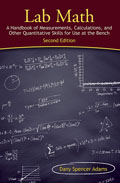A recent article, curiously enough in the Styles section of the New York Times, had the title: Statisticians 10, Poets 0. The article was about the growing number of numbers reported to “us” (an undefined population, but apparently we all use apps and watch cable TV). Poets 0 refers to the paucity of poetry. With regard to poetry’s losing score, I have to agree 97%, which could be a statistic if I asked myself over and over and over ad nauseum to get a measure of the variation in my agreeing, but I haven’t, so it is a single measurement, not a statistic. Anyway, no argment: there is not enough poetry. I must, however, raise my voice at “Statisticians 10.” The content of the article proves my point: it is mostly about counts and ratios, not statistics. Perhaps he means “statisticians 10” on a scale of 1-100?
Let me correct something intentionally misleading in the first paragraph: the author of the article does, in fact, mention some apps that are probably using statistical methods in the background, such as an app that (I’m guessing) counts the times you do various things, like breathe and beat your heart, and from those numbers it infers what phase of the sleep cycle you are in (I’m guessing), so that it can wake you when you are sleeping lightly. This, presumably, makes it easier to wake up and face the day. I’m all for things that “make it easier” just like I am all for more poetry. Another example of an actual statistic: he begins the article talking about an app that will calculates averages, and an average is a descriptive statistic. It’s not good for much if you separate it from its standard deviation; the author does not mention whether the standard deviation is provided by the app, which is a shame because the app under discussion is one that tracks sexual behavior. Talk about lost opportunities.
But even though I lied in the first paragraph, the average (mean, median, or mode is not disclosed) is not the kind of statistic that is going to have the devastating effect feared by some of the people quoted. A writer, whose writing I love, is quoted as saying: “metrics…rob individuals of the sense that they can choose their own path.” Whassat? Knowledge is the opposite of free will? Having a map robs me of the choice of where to go? The end of the quote makes me want to scream: “The surface and numbers aren’t going to hold if your child gets sick or your wife gets cancer.” When someone I love is sick, my number one first priority is getting them the best treatment. Finding and choosing among treatments means understanding statistics. After we all agree that we’ve given the patient the best chance of recovery, then I go to poetry and literature for solace, never forgetting to be profoundly grateful to the nerds who figured out the medicine, using statistics.
There is a difficulty though, aptly put by another person quoted in the article: “Coming up with the correct meaning is what’s hard.” My fear is that seeing all those averages makes people think they know something more than what they know. Humans aren’t very good at statistical reasoning, on average. And it is not difficult to spout accurate statistics then make it sound as if they support a claim – pick your favorite example, advertising or political campaigns. There is a great little book called How to Lie With Statistics that will teach you how to do it. The danger is that because the statisticians are definitely not winning, numbers can be abused and we are the losers.
What’s to be done, what’s to be done. We, defined as everyone reading this plus all teachers everywhere, have to erase the false wall between poetry and statistics. I can even argue that they are quite similar: poetry is to words as statistics is to numbers. Both capture a lot of meaning using a few symbols. I won’t attempt to carry that analogy any further. But my point is that it is not either or. Understanding numbers, even complicated ones like inferential statistics, can not possibly impact our need for art. A lack of understanding of numbers, however, is a dangerous state (see: Innumeracy by John Allen Paulos). Do I need to mention political rhetoric again?
We need to teach the interpretation of statistics, maybe even before we teach the statistics themselves. We need to teach the difference between description and prediction, (a rhyme, not a poem). We need to teach the difference between correlation and causation, and between measurement and reality, and we need to do it well. We should probably get some help from the poets.
“A poet must not aim to teach and advance a science as much as to show its advantages and make it loved.” René-Richard Castel (1758–1832)

Discussion
No comments yet.